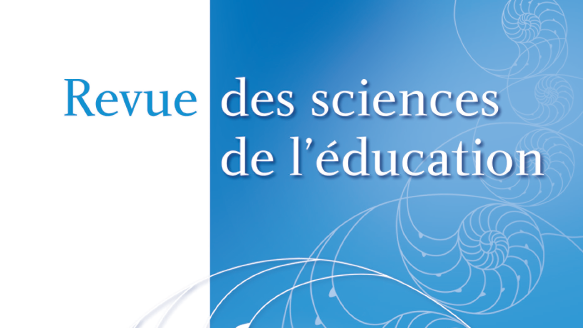For many years the human sciences have been called upon to identify and highlight good practices for the professionals they help to train. They participate in this vast movement of professionalization that affects training just as much as occupations. They enable us, for example, to better understand the process of skills development [1]1McGill Journal of Education
La construction des compétences pour enseigner
2008. They also help to update the professional training for a given occupation or activity [2]2Phronesis
De l’expérience formatrice à l’expérience apprenante: genèse et perspectives pour une mise en récit d’un processus de professionnalisation
2014.They also help resolve issues such as suffering at work [3]3Nouvelles pratiques sociales
La NGP : nouvelle gestion paradoxante
2010 or the adaptation of skills to new organizational realities.
It is clear that this research underscores the need to improve professional training with a view towards fostering the constitution and implementation of good practices. In the field of education, Tardif et al. [4]4Sociologie et sociétés
Les enseignants des ordres d’enseignement primaire et secondaire face aux savoirs: esquisse d’une problématique du savoir enseignant
1991 point out how initial training does not sufficiently prepare teachers to the new educational realities that they encountered.
Serving the ends of productivity and efficiency
As a consequence, many research programs in the social sciences fund projects aimed at better understanding the conditions of professional practice, especially in the professions of education and training. It is a question of gains in terms of quality, efficiency and productivity. In other words, it is a question of making work more effective in the context of the evolution of needs and social expectations and decreased public expenditures. Public policy has also shown interest in understanding professional practices, through for example new public management which emphasizes the search for efficiency and effectiveness in public administration [5]5Nouvelles pratiques sociales
La modernisation de l’État québécois: la gouvernance démocratique à l’épreuve des enjeux du managérialisme
2010 [6]6Revue Gouvernance
Re-examining the Rhetoric of Public Management Reform from a Critical Management Studies Perspective
2009. Organizations have consistently solicited research on the analysis of work activities [7]7Phronesis
Les situations professionnelles: un point de vue de didactique professionnelle
2012. Finally, decision-makers also seem to expect organizational and pedagogical proposals likely to foster the articulation of basic knowledge and professional knowledge from scientific research. This is the advent of engineering. This is the call for work-study alternation [8]8Éducation et francophonie
L’alternance en formation, une figure de la pédagogie
2014.

Define and Prescribe “Education”
While it seems important that research in the social sciences, and particularly in the sciences of education, continue its quest for a comprehensive understanding of professional practice, it appears to us quite essential to return to the foundations of education sciences, that is to say, its recent history. In the nineteenth century, before the construction of the sciences of education, pedagogy was expected, like philosophy, to merely list the purposes of education. Pedagogy constituted the basis for a science of education whose objective was to produce general theories of education. The intelligible world was to be structured, organized and maintained in the service of this quest for truth and this absolute ideal. Theories thus organized ideas. Reinforced by speculative theses, they sought to tell the truth about educational practice. To construct pedagogical thought is to both theorize an educational reality, in other words, build knowledge or an object of knowledge and to develop a method. The latter has a purpose: say what is true of the educational situation. Nourished in particular by scientific psychology, “the” science of education is a pedagogical discourse that seeks first and foremost to define or indeed, dictate, the educational model and the uses of teaching. In this way, pedagogy, at the dawn of the XXth century, is somehow dissolved in applied psychology [9]9Revue française de pédagogie
Spécificité et dénégation de la pédagogie
1997.
Our assumption is that research in the social sciences of education is today pursued within this paradigm. Such research carries within it external social and educational theories. This research is also involved in the development and validation of models or methods implemented in the different activities of educational organizations. There is thus maintenance of a legacy with regards to the ends and purposes of research programs in the sciences of education. Like the various projects for the production of a pedagogical knowledge, born by disciplines like scientific pedagogy, experimental pedagogy, pedagogical science or “the” science of education, “the” sciences of education are expected to be able to produce pedagogical truth or define good educational practice.
A Plea for An Overhaul
It may be useful, even essential, to retrieve the purpose of intelligibility of the educational sciences even if these are based on scientific disciplines that are sometimes encouraged to uncover the good models or reveal the best methods. Indeed, in the human sciences, calls to seek the best practices and evidence-based practice sometimes serves as a substitute for reflection on the ends and functions of these different disciplines. To exit this impasse, the sciences of education can provide examples where the concerns of understanding and intelligibility outweigh the obligation to produce results [10]10Recherches sociographiques
Review: Claude Lessard et Philippe Meirieu (dir.), L’obligation de résultats en éducation, Sainte-Foy, Les Presses de l’Université Laval, 2004
2007.
This primarily involves recourse to theories that form the basis of the contributory disciplines of science of education. It also leads to the deconstruction and reconstruction of the concepts and constructs summoned by research in education sciences. This requires above all that we re-examine the purposes of education to better understand the relevance of the proposals of intelligibility of the realities of educational practice.
Translation: Peter Keating

